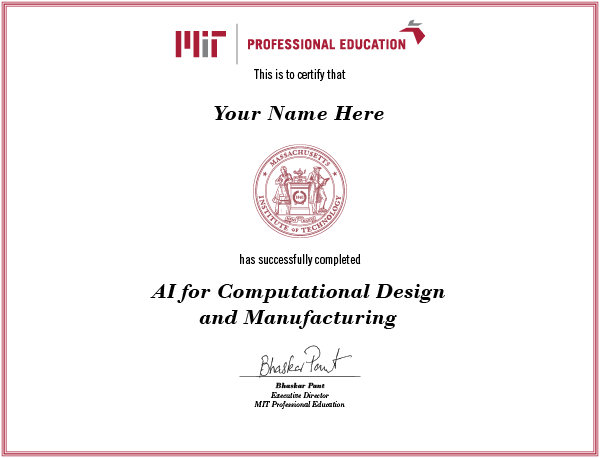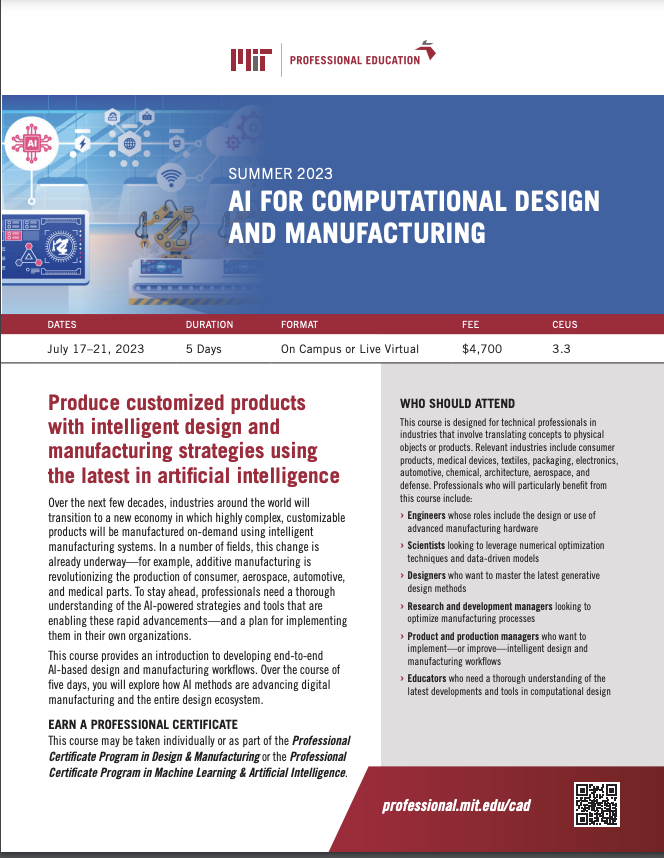This course is also offered in an on-campus format, meeting simultaneously with the live online cohort.
Transform your organization's engineering capabilities with comprehensive AI implementation spanning the complete design-to-deployment pipeline, from LLM-driven parametric design through advanced manufacturing optimization, computer vision quality control, and real-world deployment strategies. In this intensive hands-on course, you'll join accomplished global peers to master deployable AI workflows, create neural surrogates for expensive simulations, implement MLOps practices with regulatory compliance, and build complete integrated systems using open-source tools – leaving with working template libraries and custom components ready for immediate organizational deployment.
This course may be taken individually or as part of the Professional Certificate Program in Design & Manufacturing or the Professional Certificate Program in Machine Learning & Artificial Intelligence.
The type of content you will learn in this course, whether it's a foundational understanding of the subject, the hottest trends and developments in the field, or suggested practical applications for industry.
How the course is taught, from traditional classroom lectures and riveting discussions to group projects to engaging and interactive simulations and exercises with your peers.
What level of expertise and familiarity the material in this course assumes you have. The greater the amount of introductory material taught in the course, the less you will need to be familiar with when you attend.




